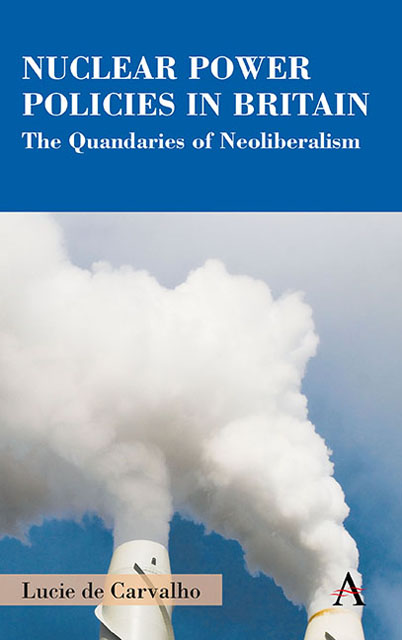Chapter Four - Transcending the Private–Public Nexus in Reviving the British Nuclear Industry
Published online by Cambridge University Press: 10 January 2023
Summary
When construction works began on the Hinkley Point C project in December 2016, it had been almost thirty years since the industry had been in a similar situation. To dub a report from the Major Projects Association, the burning question that was then raised was: ‘Was British nuclear industry ready and properly equipped for it?’ Building a new generation of nuclear power plants put the country's industry, that is, logistics, manufacturing services, infrastructure and manpower, and innovation capacity to the test. If incapable to rise to the challenge, these key parameters would not only erode confidence in nuclear energy but also well kill the project in the egg, despite EDF's engineering input and expertise.
This chapter will focus less on policy design than on policy delivery, or the phase when a planned policy project enters the implementation phase. In the present case, building a nuclear power plant turns into a most intricate endeavour due to the imploded nature of the nuclear services network and supply chain. The new nuclear build hence called for a reappraisal of the relations between government and industry, which triggered an upsurge of academic interest in governance literature in the early 2010s. This analysis therefore builds on a broader exploration of the shape and workings of the contemporary British nuclear industry. Until the 1990s, the UK nuclear industry was based on a rather straightforward structure governed by the corporatist model, which can be defined as follows:
A system of interest representation in which the constituent units are organised into a limited number of singular, compulsory, non-competitive, hierarchically ordered and functionally differentiated categories, recognised or licenced (if not created) by the state and granted a deliberate representational monopoly within their respective categories in exchange for observing certain controls on their selection of leaders and articulation of demand and supports.
The neoliberal privatisation of the sector in the late 1980s disintegrated the pre-existing monolithic, state-protected structure, severing many of the financial and organisational bonds between government and industry. The Department of Trade and Industry saw its purview shrink and several of its original decision-making prerogatives transferred to The Exchequer. In the realm of industrial policy, the UK state was somehow relegated to an auxiliary or adjunct function, a by-stander even for some, in a landscape where major nodal poles seemed to operate in growing isolation.
- Type
- Chapter
- Information
- Nuclear Power Policies in BritainThe Quandaries of Neoliberalism, pp. 115 - 146Publisher: Anthem PressPrint publication year: 2022

